From the Chicago Reader (January 12, 1990). I was disappointed to hear from one of the audio commentators on the Criterion DVD of Solaris that he regarded the lengthy highway sequence as one of the film’s “weaker” sections; for me it’s one of the highlights, both as a provocation and as a “musical” interlude that becomes an occasion for hypnotic drift. — J.R.
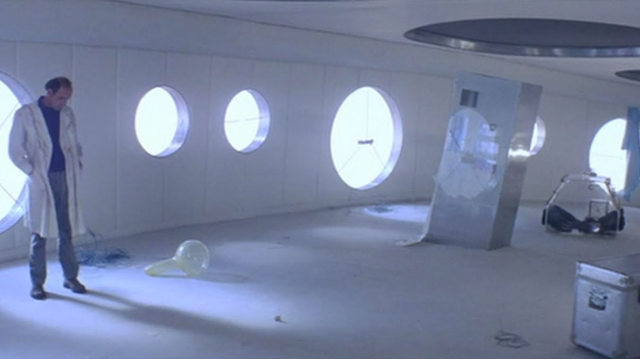
SOLARIS **** (Masterpiece)
Directed by Andrei Tarkovsky
Written by Friedrich Gorenstein and Tarkovsky
With Donatas Banionis, Natalya Bondarchuk, Yuri Jarvet, Vladislav Dvorzhetsky, Anatoly Solonitsin, and Sos Sarkissian.
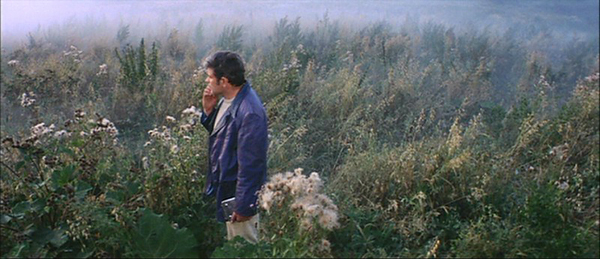
“We take off into the cosmos, ready for anything: for solitude, for hardship, for exhaustion, death. Modesty forbids us to say so, but there are times when we think pretty well of ourselves. And yet, if we examine it more closely, our enthusiasm turns out to be all sham. We don’t want to conquer the cosmos, we simply want to extend the boundaries of Earth to the frontiers of the cosmos. For us, such and such a planet is as arid as the Sahara, another as frozen as the North Pole, yet another as lush as the Amazon basin. Read more
Part of my 1987 application for the job of film reviewer at the Chicago Reader consisted of writing three long sample reviews for them in March and/or April — only one of which was published by them (Radio Days), although, as I recall, they paid me for all three. (Writing my pieces in Santa Barbara, I was limited in my choices of what I could write about.) I only recently came across the two unpublished reviews, of Platoon and Round Midnight, in manuscript, although I recall that I did appropriate certain portions of them in subsequent reviews. Otherwise, the first publications of these pieces are on this site. — J.R.
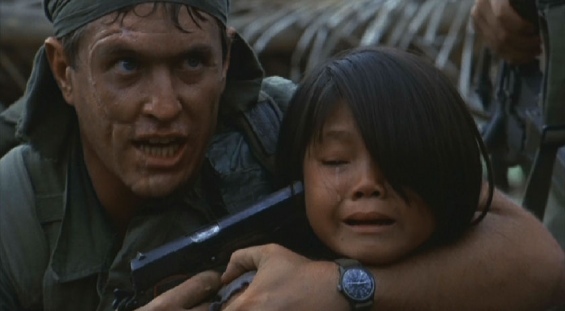
**PLATOON
Directed and written by Oliver Stone
With Charlie Sheen, Tom Berenger, Willem DaFoe and Keith David.
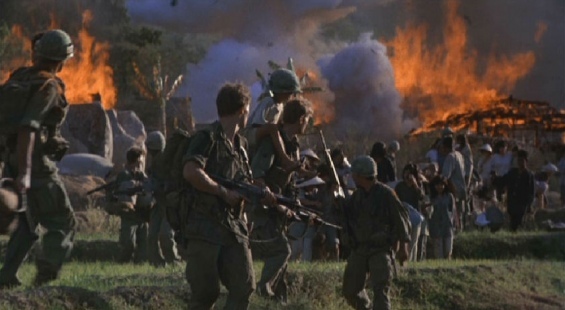
“I mean, you know that, it just can’t be done! We both shrugged and laughed, and Page looked very thoughtful for a moment. “The very idea!” he said. “Ohhh, what a laugh! Take the bloody glamour out of bloody war!”
Michael Herr, Dispatches
The myth of lost innocence that permeates American movies like some omnipresent air freshener ultimately has a lot to answer for. Read more
A book review published in the Village Voice (January 25, 1983). The version below restores some of the details deleted by an editor. — J.R.
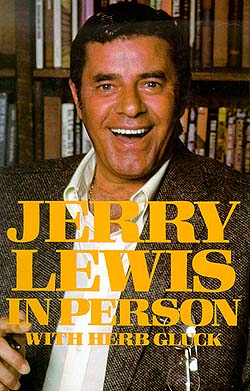
JERRY LEWIS IN PERSON
By Jerry Lewis with Herb Gluck
Atheneum, $14.95
As a longtime Lewis fan who has lived in Paris, I have less curiosity about the French passion for him than most Americans. The unbridled sweep of the all-American ego at its most infantile and traumatized has always been an object of awe and fascination for the French; think of their celebrations of Poe and Faulkner, H.P. Lovecraft and Orson Welles. Call Jerry Lewis “America” (or vice versa) and you have a recognizable psychosexual object that signifies something more than slapstick and telethons. You also have an explanation for why some part of us despises the man — for rubbing our noses into potential traumas we claim to have outgrown, postulating his hysterical comedy as the literal cutting edge of our equilibrium.
One doesn’t ordinarily turn to an as-told-to show-biz memoir for extended self-analysis. But Jerry Lewis In Person exudes an uncomfortable candor that may actually endear Lewis to some of his detractors, while making admirers like me squirm a bit. The childhood sections which predictably dominate depict not only the lonely New Jersey misfit I expected, but also the street-smart chutzpah of a semi-abandoned tough guy who dreamt of murdering his grandfather, killed his cat in a rage when he was five, hated his show-biz parents for not even showing up to his bar mitzveh, and habitually socked anti-Semites and other wise guys (including his high school principal) in the mouth. Read more





